Mackerel is the soul food of the Thai nation. It is cheap, delectable, nutrient-rich, and abundant, which is why it has been a main ingredient of many dishes and has helped people who live hand-to-mouth survive for decades.
But Thai mackerel today is not as abundant and cheap as before. The fish sold in the fresh markets are getting smaller and smaller, and most of them are imported from other countries. Many agree they do not taste as good.
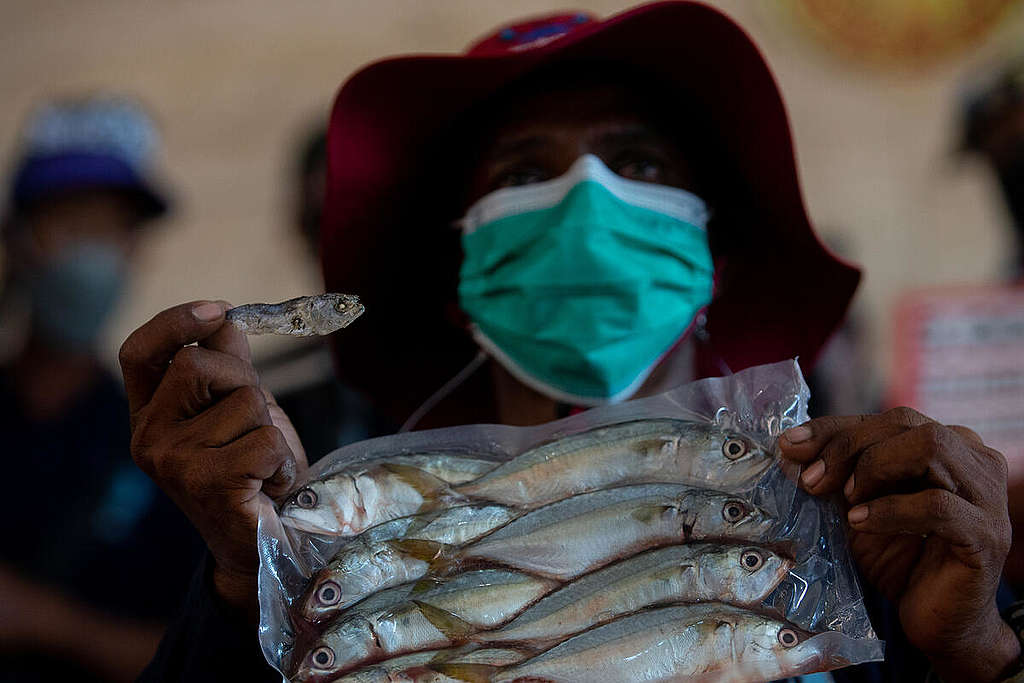
This is a result of years and years of unregulated overfishing of juvenile fishes. The number of Thai mackerel has dwindled significantly over recent years. In 2020, Thailand could catch mackerels ten times less than it was able to in 2014.
To prevent Thai mackerel from going extinct, local fishers have campaigned against catching, selling, and consuming juvenile fishes. They have created nursery facilities for marine animals in their communities and have used online tools to communicate this crisis to the public. Letters have been submitted to supermarkets, calling them to stop selling juvenile fishes.
"More and more juvenile fishes are being caught," Piya Thedyam, President of the Artisanal Fishermen Network of Prachuap Khiri Khan Province, told us as he was waiting in front of a supermarket to submit the demand letter. "This impacts small-scale fishers as well as consumers across the country. Seafood will be more expensive. Our campaign is to ensure food security in the future."
The campaign has raised awareness among consumers and fishers, but according to Piya, one more important element is needed to be taken into consideration: regulation. Throughout the years that Piya and the fishers have run the campaign, there has never been any attempt from the government side to improve, even though there is a legal tool they could utilize.
Section 57 in Thailand's Fisheries Act states that "no person shall catch aquatic animals or take aquatic animals of a size that is smaller than that prescribed by the Minister on board a fishing vessel." Used properly, this would help protect juvenile marine animals, however, this has never been effectively implemented.
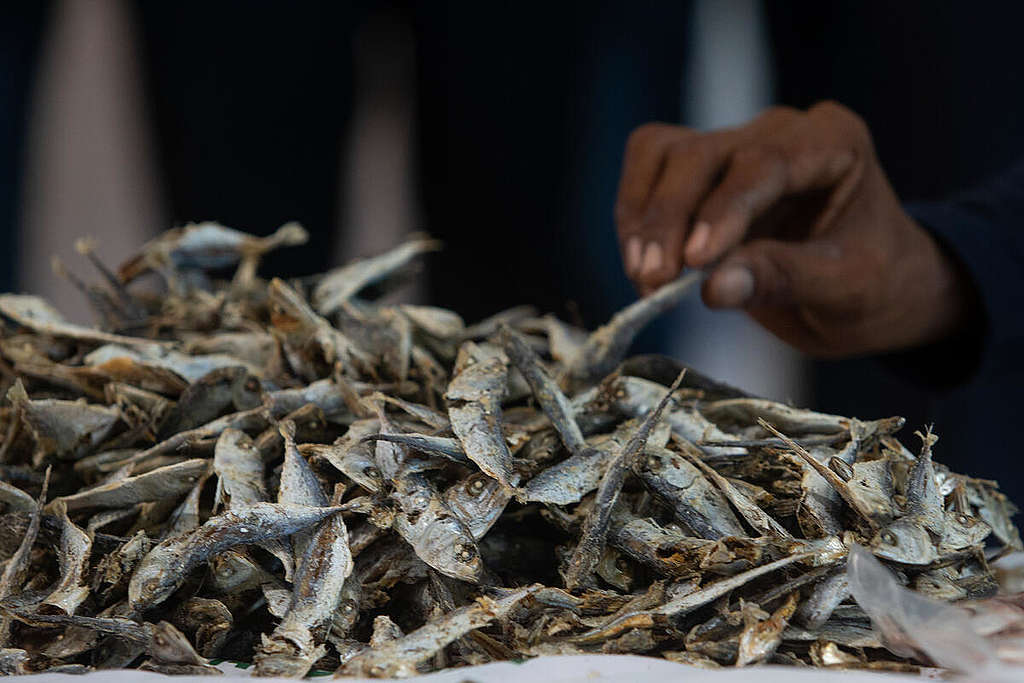
Fishers from 23 coastal provinces therefore gathered to organize a voyage called "Reclaim Mackerel Chili Paste" – a famous sauce made of mackerel and Thai herbs. "Reclaim Mackerel Chili Paste" thus portrays the activists' will to preserve culture, food security, and the natural resources of the country.
From local fishing boats, they sailed more than one thousand kilometers from the deep south of the country, Pattani province, to the Parliament in Bangkok to call for the government to implement the aforementioned law and announce regulation that would solve the issue.
For two weeks the fishers were on and off the fishing boats stopping each day at coastal communities to stage a panel discussion on fishing and environmental issues in the area, and to communicate to the public about the worsening health of the Thai oceans. The voyage slowly intensified as the activists edged closer to Bangkok; and on World Oceans Day on June 8, they sailed their fishing boats through the main river that cut through the city to the dock behind the parliament and submitted the demand letter to government agents.
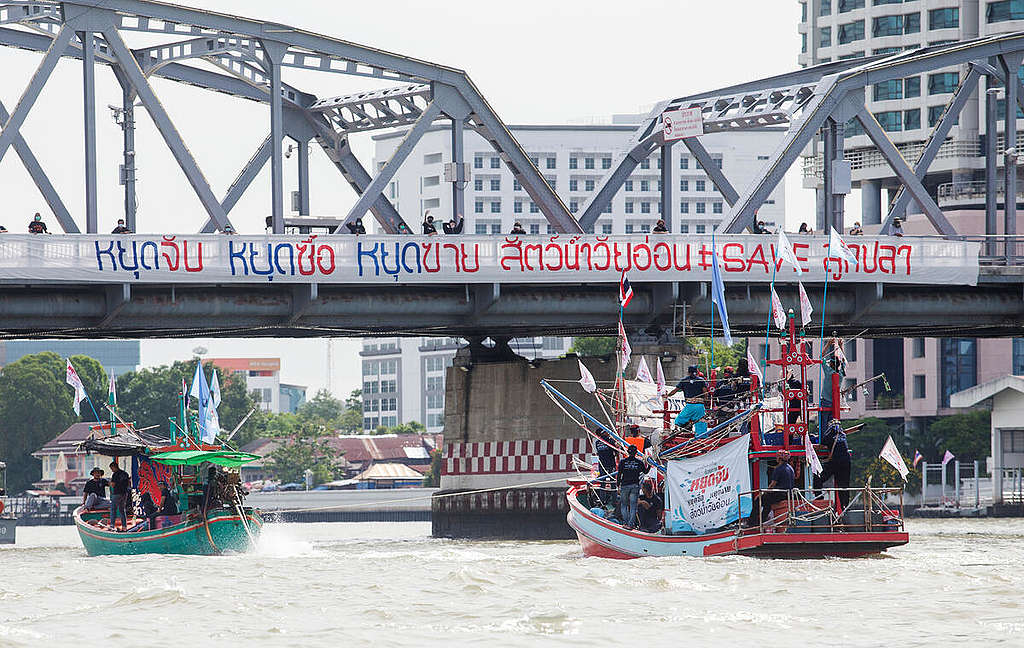
© Chanklang Kanthong / Greenpeace
Wichoksak Ronnarongpairee, one of the activist leaders, explained that they held this voyage because they did not want seafood to become "luxury food" that could only be accessed by the rich.
"Seafood has high nutrition, but it is no longer easy to buy these days. It is expensive, and out of reach for poor people. They can only eat seafood on important occasions. The government must realize this and come up with regulations to stop the crisis. We can restore fishes to the ocean."
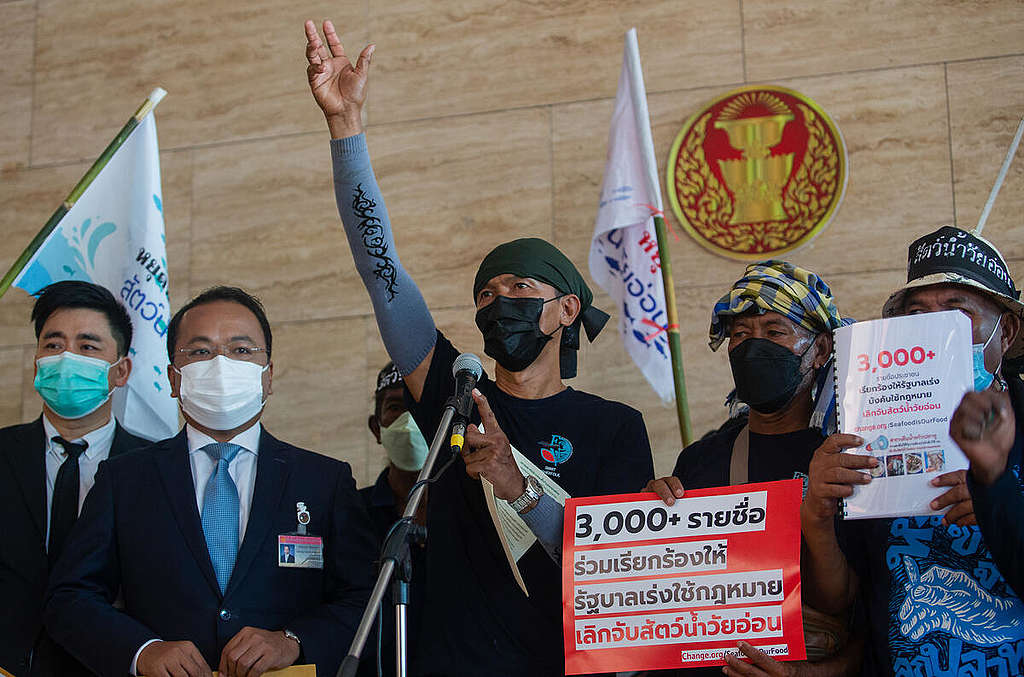
©Chanklang Kanthong / Greenpeace
Images and footage of small fishing boats against the backdrop of the Thai Parliament's giant construction went viral, representing the bravery of these local fishers who spoke truth to power in order to protect natural resources and their coastal communities. The voyage was highlighted by big and small media outlets, and raised awareness and sparked debate on the seafood crisis across the country, pressuring the government to give a promise they would take the issue seriously.
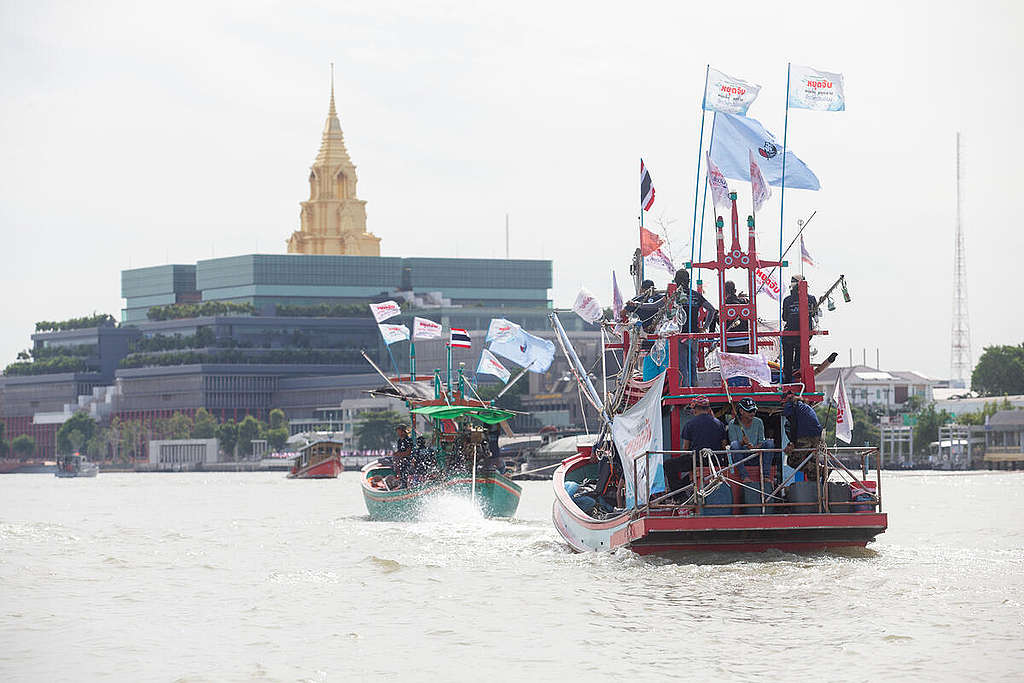
Despite a promise, it appears zero steps have yet been taken. The activists announce they give them the 60-day ultimatum, before they take another action.
Songwut Jullanan is the Oceans Communication Officer at Greenpeace Southeast Asia






